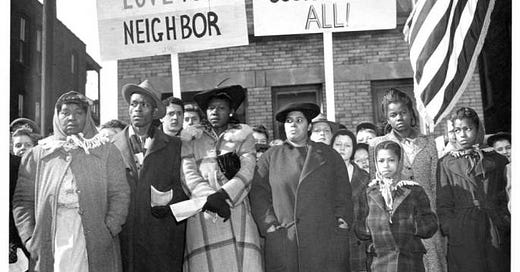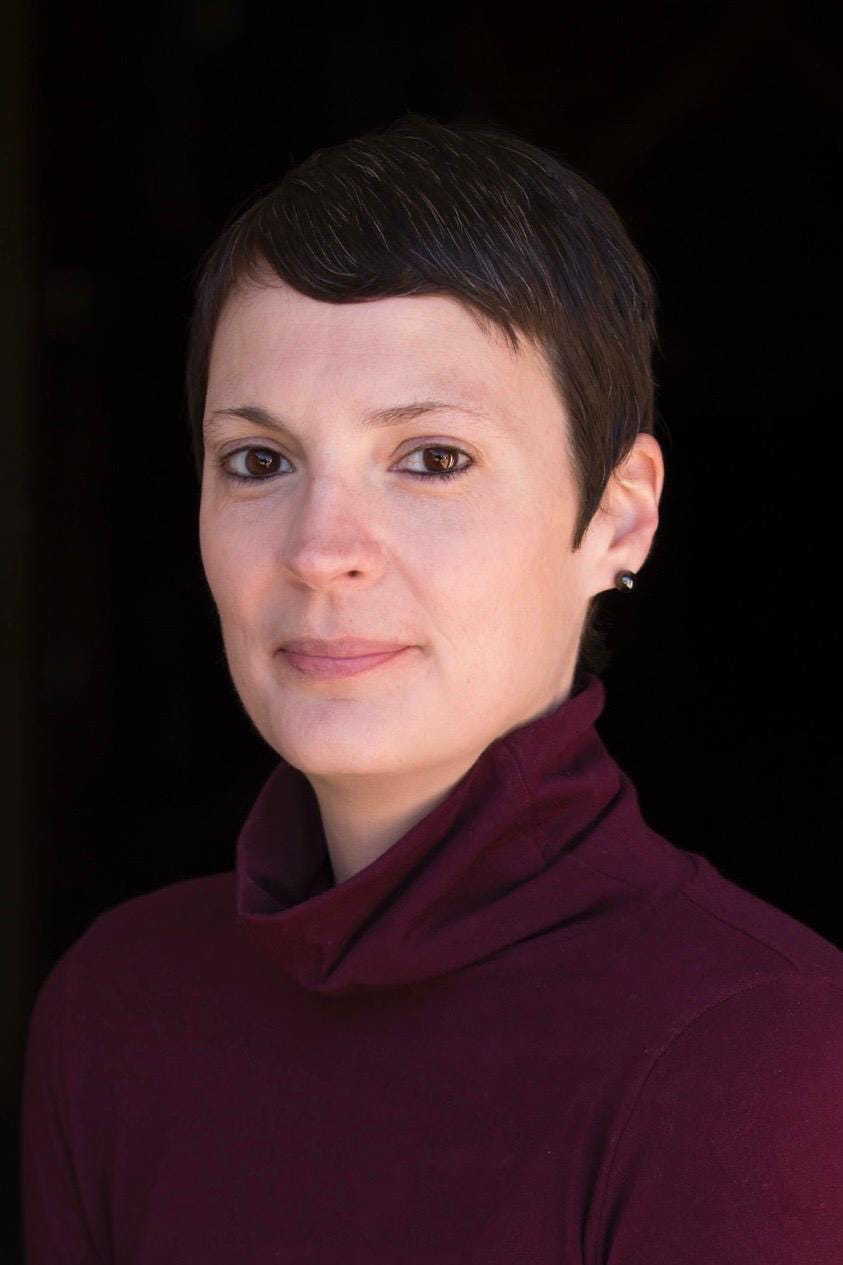Holding Ourselves to High Ideals in a Very Low Moment
We cannot cede the moral high ground to bad actors who promote selfishness and cruelty as normal. Especially in our current moment, we must both expect more and demand improvement.

By Vaneesa Cook
Even before the results of the 2024 election were announced in early November, public comments condemning racist, xenophobic, and bigoted remarks by the Republican candidate for president often appeared on social media with the exhortation: “This is not who we are!” But such pleas to live up to our nation’s ideals became controversial, particularly the claim that “we” (Americans) are not an intolerant people. Posts of this kind were frequently challenged by those who insisted the United States has a long history of inequality and violence and has never lived up to its ideals.
As a historian, I am well aware of the nation’s history of discrimination, and I agree that it should never be ignored. Yet I also see the importance of statements like “This is not who we are” as a means of holding Americans accountable to civic values that have been expressed, at least rhetorically, since the founding documents.
A quick Google search of the term “American ideals” generates a list including liberty, equality, the rule of law, republicanism, democracy, and the pursuit of happiness – all derived from the Declaration of Independence and the Constitution. These values, it is true, have not been fully practiced or realized, making a lie of American moral exceptionalism. At the same time, these values have served as the only resource for progressive politics. Without reference to them, reformers would be hard-pressed to inspire their fellow Americans to improve society.
Commentators taking issue with posts exclaiming “This is not who we are” sometimes suggest alternative phrases like “This is not who we should be.” The slight modification is perhaps more accurate but loses a lot in leverage. It is defeatist to imply that since our ideals are not a reality, they can never be achieved. Cynics assert that if society has always been unjust, then it is pointless to pursue major reforms. Yet, we must believe in the possibility of change; otherwise, we can only accept defeat and despair at every turn. We cannot cede the moral high ground to bad actors who promote selfishness and cruelty as normal. We must expect more and demand improvement, especially now.
Idealism about national history becomes even more important when religious leaders can no longer be trusted to direct their followers toward goodwill, liberty, and justice for all. In recent years, many popular evangelical Christians have ignored the gospels’ mandate to love each other, and we must therefore find alternative sources of inspiration. The actual message of Jesus should be marshaled to oppose Christian nationalism. A more civic religion, based in communities committed to loving their neighbors and the most vulnerable, must remind the nation of our better angels.
Depending on how we look at it, being kind, generous, respectful, open-minded, helpful, and tolerant is indeed who we are and have always been. Yes, there were millions of racist, bigoted men and women in our history who committed despicable acts of violence against blacks, Jews, Muslims, homosexuals, migrants, and many others. But we must also remember the millions who stood against these horrors – those who rose up to demand the abolition of slavery, civil rights, and fairness in every generation. The dissidents and activists – from Frederick Douglass and Harriet Tubman to Susan B. Anthony and Cesar Chavez – are worthy of renewed attention as heroes condemning cruelty and exemplifying the good we all can do. Without neglecting the vile aspects of US history or the people who suffered from it, the more positive parts of our national narrative deserve telling.
As moral rhetoric goes, we already have what we need. The United States has produced the most inspiring language dedicated to human freedom, even as it has limited that freedom at home and abroad. The phrase, “this is not who we are,” is a bulwark to the rhetoric of freedom and liberation. Americans need the inspiration to strive for liberty, justice, and a kinder country. To have any chance of realization, our civic idealism should not be dismissed as Pollyannish or out-of-date. We need it more than ever, and we should shout our idealism from the rooftops against the cynics, the selfish, the liars, and the cruel manipulators.
What we see from Trump and his supporters “is not who we are.” We must do better, and we can draw upon our past for strength.
Vaneesa Cook is a historian and writer. Her first book, Spiritual Socialists: Religion and the American Left, was published in 2019 by Penn Press, and her latest nonfiction narrative entitled Empire and Liberty: The Tied Histories of Two American Landmarks will be available through Beacon Press in early 2026. She has also written articles for Dissent, The Washington Post, Sojourners, Current, LA Review of Books, Raritan, and Aeon, among others. Vaneesa received her Ph.D. in history from the University of Wisconsin-Madison.






Interesting observations, synergistic with what I’ve been musing about but on the other side of the border. If you’re interested, please check it out ✌️
In Mel Brooks movie History of the world, Brooks, playing Louis XIV turns to the audience and says,”Is good to be king,” understand its plays on a continuous loop in the White House. Who can we compare to our current leadership? Bismarck, arch conservative who defeated Austria and France as well as created a social security system, and of course Elon, as Richlieu whispering in the Kings ear, Is Melania Mde Pompadour? Trump’s favorite president was assassinated and the blade of the French Revolution ended the rule. of the aristocracy… c’est la vie